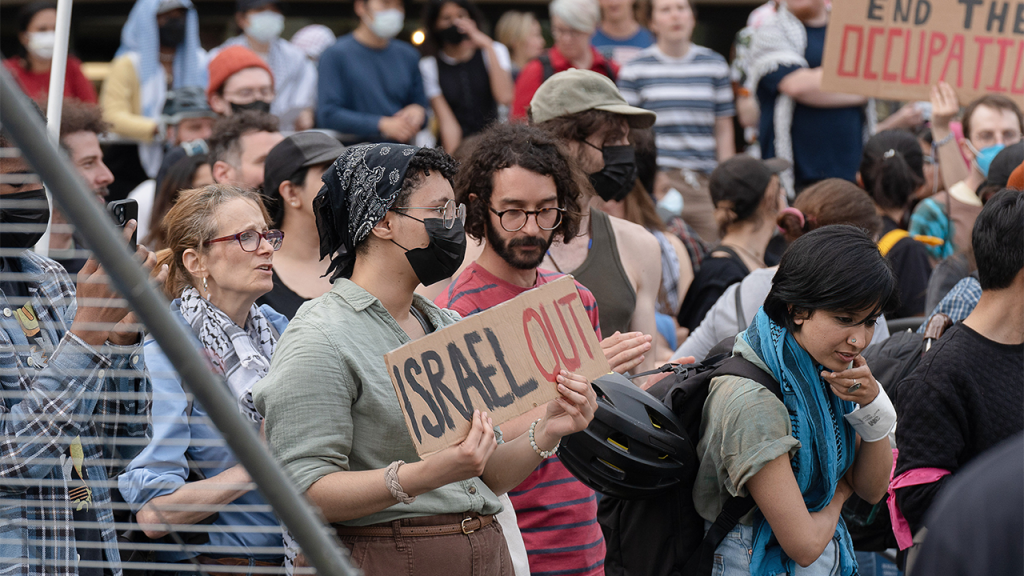Anti-Israel protests have been ongoing on college campuses across the United States for nearly three weeks, resulting in over 2,600 arrests on 50 campuses. The protesters are demanding that their schools cut all ties with Israel in response to its actions in Gaza. While some universities have cracked down on the protests, others have shown more restraint in their reactions. However, some campuses are starting to lose patience with the increasing combativeness of the protesters, with some calling for violent actions against school administrators.
At the University of Chicago, where hundreds of protesters had gathered on campus, administrators initially took a permissive approach but eventually warned the protesters to leave or face removal. A scuffle ensued, and law enforcement dismantled the encampment. University President Paul Alivisatos emphasized the importance of freedom of speech while also expressing concerns about the disruption caused by the ongoing protest. Meanwhile, officials at the University of North Carolina, Chapel Hill, have warned instructors against withholding grades from students involved in the protests, threatening sanctions for improper actions.
At the Massachusetts Institute of Technology (MIT), protesters were given a deadline to voluntarily leave their encampment or face suspension. Many protesters complied, but some remained despite the threat of disciplinary action to ensure the safety of the community. Other schools, such as the Rhode Island School of Design and Wesleyan University, have taken a permissive approach to the protests, affirming students’ rights to freedom of speech and allowing demonstrations to continue on campus. However, some protesters feel that the university’s permissive attitude is still not sufficient as they fear the possibility of being forcibly removed as commencement ceremonies approach.
As some universities struggle to address the ongoing anti-Israel protests on their campuses, approaches vary from cracking down on protesters to allowing demonstrations to continue. While some administrators emphasize the importance of freedom of speech, they are also concerned about the disruption caused by the protests. With commencement ceremonies looming, the dynamics between protesters and university officials are tense, with protesters fearing they may face consequences for their actions. The ongoing protests highlight the complexities of balancing freedom of expression with maintaining safety and order on college campuses.













